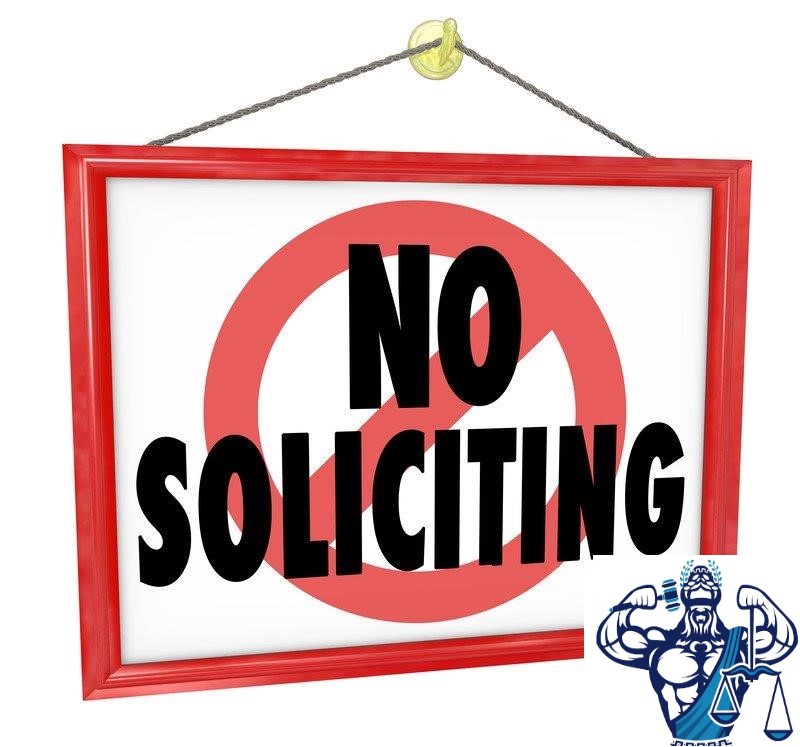Here at the Law Office of Vincent Miletti, Esq. and the home of the #UnusuallyMotivated movement, we take pride as a resilient and dependable legal services firm, providing such services in both a traditional and online, web-based environment. With mastered specialization in areas such as Employment and Labor Law, Intellectual Property (IP) (trademark, copyright, patent), Entertainment Law, and e-Commerce (Supply Chain, Distribution, Fulfillment, Standard Legal & Regulatory), we provide a range of legal services including, but not limited to traditional legal representation (litigation, mediation, arbitration, opinion letters and advisory), non-litigated business legal representation and legal counsel, and unique, online legal services such as smart forms, mobile training, legal marketing and development.
Still, we, here at Miletti Law®, feel obligated to enlighten, educate, and create awareness, free of charge, about how these issues and many others affect our unusually motivated® readers and/or their businesses. Accordingly, to achieve this goal, we have committed ourselves to creating authoritative, trustworthy & distinctive content, which looks to not only educate, but also deliver in a manner that only Miletti Law® can. Usually, this content is featured as videos posted on our YouTube Channel https://www.youtube.com/channel/UCtvUryqkkMAJLwrLu2BBt6w and blogs that are published on our website WWW.MILETTILAW.COM. With that, the ball is in your court and you have an effortless obligation to subscribe to the channel and sign up for the Newsletter on the website, which encompasses the best way to ensure that you stay in the loop and feel the positive impact of the knowledge bombs that we drop here!
As a way of responding to your inquiries and questions regarding legal representation and how to navigate legal matters concerning the entertainment industry, we introduced a new L & E (Law & Entertainment) series on Entertainment Law a week ago. In our second video titled “3 Unique Properties of Entertainment Contracts” and Part II of the L & E series, we hammered on three unique properties of entertainment contracts, including “Oral Discussions,” “Unsigned Writings,” and “Deal Memo.” In order to move this discussion forward and continue responding to your queries, inquires, and reach outs, this blog introduces you to our video titled “7 Tips To Avoid Entertainment Contract Formation Problems” and Part III of the L & E series. As usual, it is accessible through the link provided at the end of this blog or as posted on our social media platforms.
As discussed in Part II of this series, contracts in the entertainment industry are very unique. Unlike in other industries such as e-commerce, corporate business, insurance, or banking, contracts in the entertainment industry are very different and do not follow the standard contract formation process, especially due to the extraordinarily rampant oral discussions and unsigned writings/documents. Generally speaking, contracts in this industry reflect a high degree of uncertainty because of the A-Type personalities and the dynamic nature of the entertainment industry.
There is also, within contract law, a legal principle known as promissory estoppel. This principle implies that if a party had a reasonable reliance on a given promise and detrimentally relied upon this particular promise such that this party has been unable to move forward and, thus, stagnated in action, then the party may recover liabilities and damages based on the promise made. Thus, promissory estoppel could apply to oral discussions and unsigned documents where promises are made in contracts in the industry. However, you would probably want to take the necessary measures and make sure the situation does not escalate to such a point that it would require the application of promissory estoppel.
As you would expect, problems are always bound to arise when making contracts in the entertainment industry, especially since A-Type personalities come with A-Type conflicts. So, how do you circumvent these problems when they arise? As usual, you do not have to brood with concern about what to do because we have, in this blog and the video it has been adapted from, prepared for you the 7 tips on how to avoid entertainment contract formation problems and eliminate the need for promissory estoppel to be applied.
- Get a signed document or piece of writing – irrespective of the amount of oral discussions and promises made, it is critical to get a written and signed document or piece of writing, which can at least affirm some of the terms and issues you have agreed on in the negotiations.
- The signed document should specifically indicate what is binding – the written and signed document should be specific about several things, such as what terms are bound by the contract, the length of the contract, and the terms of compensation and allowances.
- Regarding whatever is specifically binding, the signed document should specifically indicate any bargained terms – make sure that every term and issue that is bargained has explicitly been captured in the signed document. This information includes what terms and issues are negotiable and which ones are not.
- Include applicable cross-references, outside terms, contracts, or previous deals – such references will be extremely helpful in terms of having long-term consistency and supporting the existing agreement because of the dynamic nature of the entertainment industry.
- Develop some formula or process for addressing compensation issues – a formula, process, or method would be helpful when the contracting parties cannot agree on the terms of compensation. It might be impossible to agree on a number, but a formula that might include fixed or flexible pay rates, allowances, incentives, and other benefits could help arrive at the amount of compensation.
- Keep the contract as short as possible – as you would expect it, A-Type personalities (including media celebrities and artists) may not pay much attention to long, legal documents. Thus, you would want to keep the contract as precise, specific, and concise as possible. Key terms and conditions should be written in detail but to the point.
- Be bold and invest in recitals – you should not fear to include recitals to indicate and specify the intention of the contract. Use recitals to indicate the objectives and goals of the contracting parties. When things in this industry take a nosedive, these recitals will help to reinforce your case.
Feel welcome to view our video at https://www.youtube.com/watch?v=ucuVu_EmKsk.
Stay tuned for Part IV of this L & E series and, as usual, strive to stay #UnusuallyMotivated. In the interim, reach out to us with questions and/or comments on our website at the Contact Us page!
Always rising above the bar,
Isaac T.,
Legal Writer & Author.
 Professional Legal & Business Services And Representation - English & Espanol!
Professional Legal & Business Services And Representation - English & Espanol!

 314-648-2586
314-648-2586 CALL US NOW
CALL US NOW








